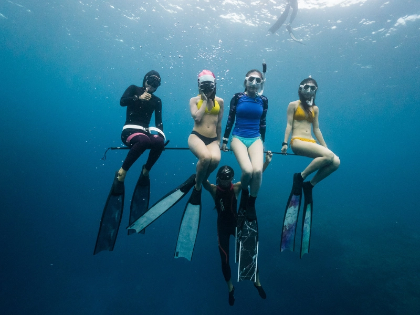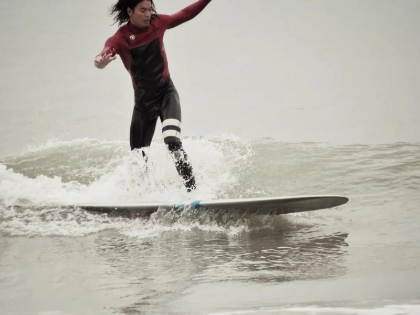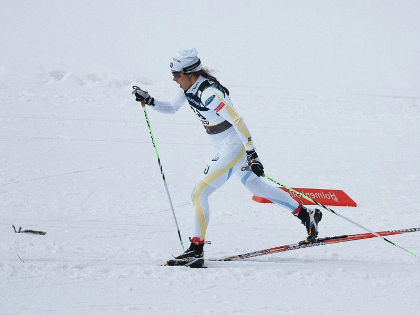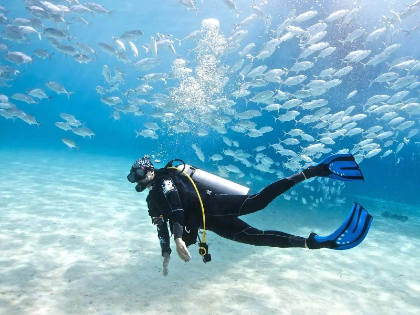TechnicalDiving: Going Deeper And Longer
Dives above the limitations of recreational scuba define technical diving. It calls for specialised tools like twinsets or sidemount, unique gas mixes, and intensive instruction. It also calls for redundancy, dive preparation, and a tolerance of risk. Unfortunately, many recreational organisations that enable inept tech divers to fast-track their way into the society will continue to let this issue proliferate under their modus operandi.
The difficulty
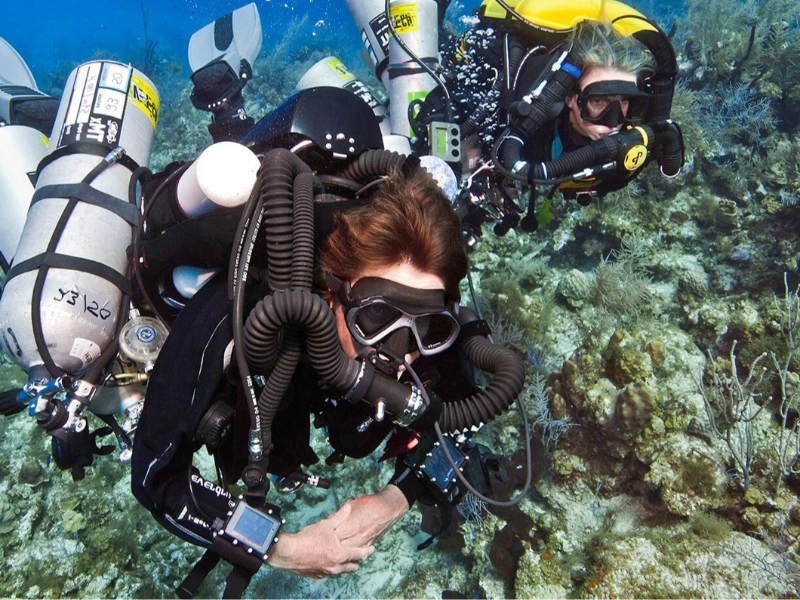
The Gifts
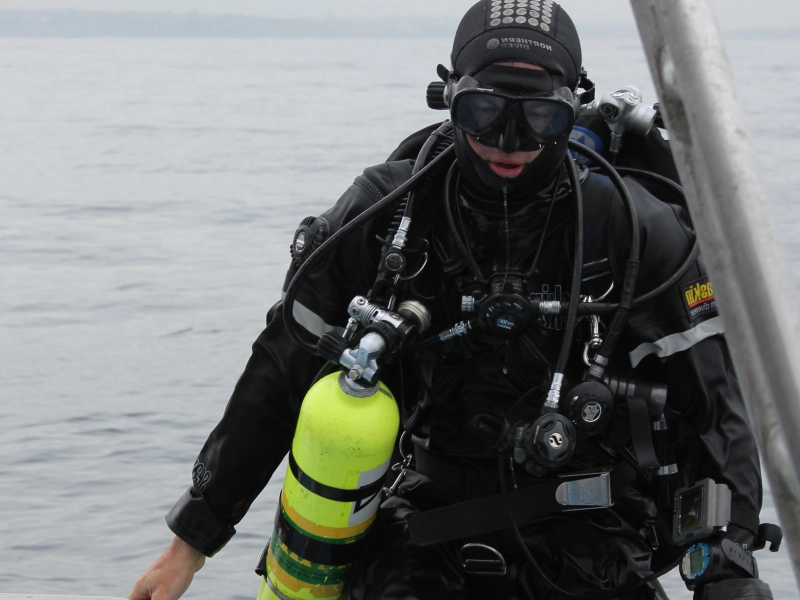 Underwater, there is a great beauty beyond of leisure restrictions. For some divers, the excitement of discovering unspoilt wrecks or marine life living far below the surface is well worth the additional training and time required to do technical dives.
Becoming a technical diver revitalises the relationship with diving; it's like falling in love once more, but this time the magic is deeper and more prolonged. Your enjoyment of all your future dives will rise if you pay more attention to safety, pick new techniques, and grow more self-assured in your diver skills.
Technical diving is defined as any dive involving penetration into a cave or wreck that takes you below your recreational diving limits and calls for planning for and execution of decompression pauses to prevent decompression sickness. For this reason, you will employ twinsets or doubles, back-up tanks and a lot of other equipment not usually carried by recreational divers. Without this degree of training, you would not be able to execute safe, controlled, planned dives that this extra gear permits.
Underwater, there is a great beauty beyond of leisure restrictions. For some divers, the excitement of discovering unspoilt wrecks or marine life living far below the surface is well worth the additional training and time required to do technical dives.
Becoming a technical diver revitalises the relationship with diving; it's like falling in love once more, but this time the magic is deeper and more prolonged. Your enjoyment of all your future dives will rise if you pay more attention to safety, pick new techniques, and grow more self-assured in your diver skills.
Technical diving is defined as any dive involving penetration into a cave or wreck that takes you below your recreational diving limits and calls for planning for and execution of decompression pauses to prevent decompression sickness. For this reason, you will employ twinsets or doubles, back-up tanks and a lot of other equipment not usually carried by recreational divers. Without this degree of training, you would not be able to execute safe, controlled, planned dives that this extra gear permits.
The instruction
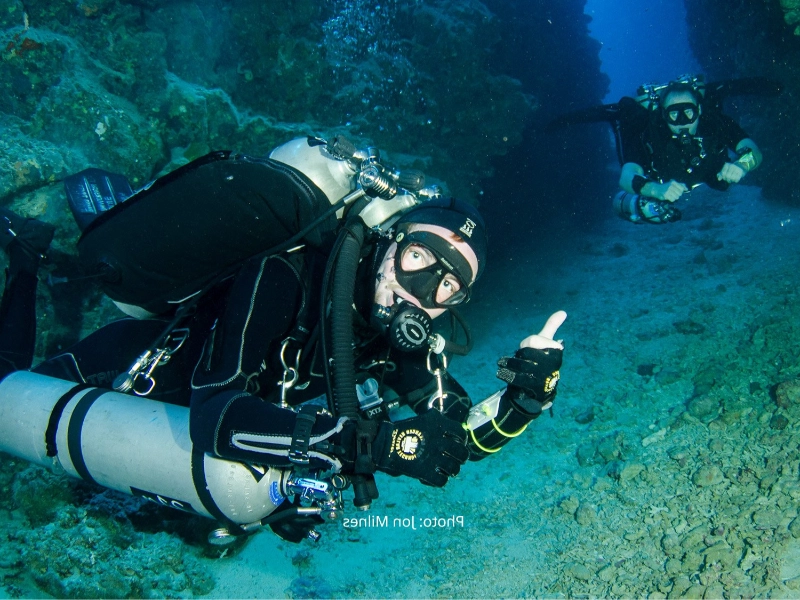 Technical diving calls for a lot of advance work and preparation. Unlike recreational diving, where preparation may be optional, in technical dives you must bring various gas mixtures for varying depths and schedule your decompress stops ahead of time.
To go farther and longer also you require specific tools. This comprises a tailored BCD for greater air (wing type) and a harness securing extra tanks known as a twin set. Should a cylinder break, you also need a unique regulator with an extra long hose known as an octopus to lend to your friend.
Learning new buoyancy techniques like the helicopter turn and how to execute a reverse swim is another crucial training for technical dives. You also learn how to examine your own gear to ensure it is ready for a long dive. This degree of preparation and knowledge should be continuous even following your initial tech course.
Technical diving calls for a lot of advance work and preparation. Unlike recreational diving, where preparation may be optional, in technical dives you must bring various gas mixtures for varying depths and schedule your decompress stops ahead of time.
To go farther and longer also you require specific tools. This comprises a tailored BCD for greater air (wing type) and a harness securing extra tanks known as a twin set. Should a cylinder break, you also need a unique regulator with an extra long hose known as an octopus to lend to your friend.
Learning new buoyancy techniques like the helicopter turn and how to execute a reverse swim is another crucial training for technical dives. You also learn how to examine your own gear to ensure it is ready for a long dive. This degree of preparation and knowledge should be continuous even following your initial tech course.
The Tools
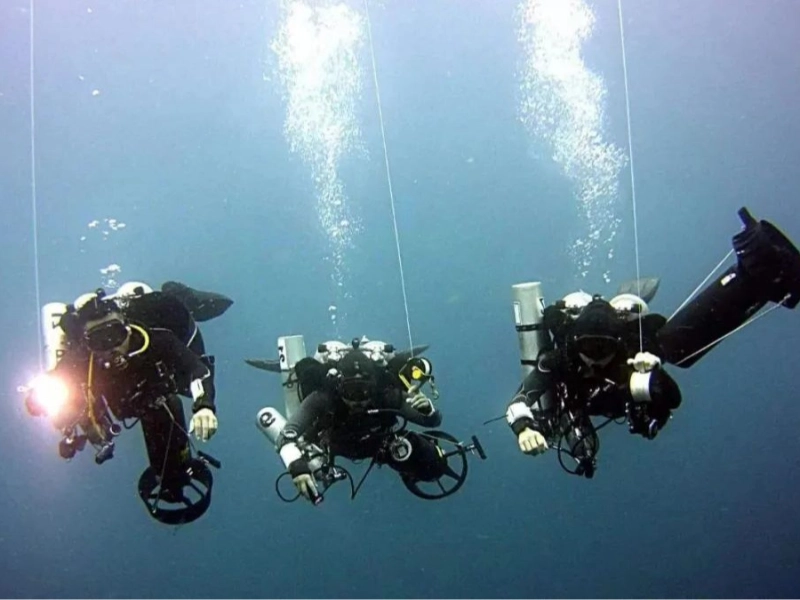 Technical divers carry much more gear than recreational divers, and that gear must cooperate. Should a piece of equipment fail, the dive may suffer greatly or could become fatal in some cases. A technical diver will so refuse to let their equipment be the cause of trouble. They will check it, assess it, then correct it.
They will also dedicate a lot of time honing a working posture that reduces surface area exposed to the water. This helps to cut drag, simplify movement, and maximise gasoline economy.
At last they will devote significant time and money making sure they can control their decompression responsibilities and any inert gas narcosis risk. All of this is to guarantee their ability to remain underwater safely and complete the goal they have set for themselves on a dive. They never will compromise training or buy equipment on cost alone, nor will they take corners.
Technical divers carry much more gear than recreational divers, and that gear must cooperate. Should a piece of equipment fail, the dive may suffer greatly or could become fatal in some cases. A technical diver will so refuse to let their equipment be the cause of trouble. They will check it, assess it, then correct it.
They will also dedicate a lot of time honing a working posture that reduces surface area exposed to the water. This helps to cut drag, simplify movement, and maximise gasoline economy.
At last they will devote significant time and money making sure they can control their decompression responsibilities and any inert gas narcosis risk. All of this is to guarantee their ability to remain underwater safely and complete the goal they have set for themselves on a dive. They never will compromise training or buy equipment on cost alone, nor will they take corners.


